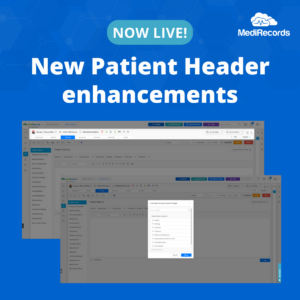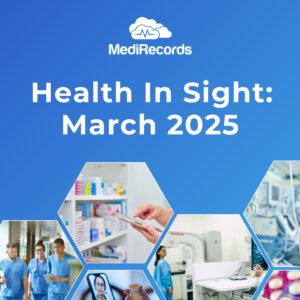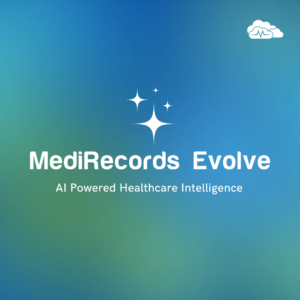September 25, 2024
MediRecords teams with Heidi Health for smarter clinical notes
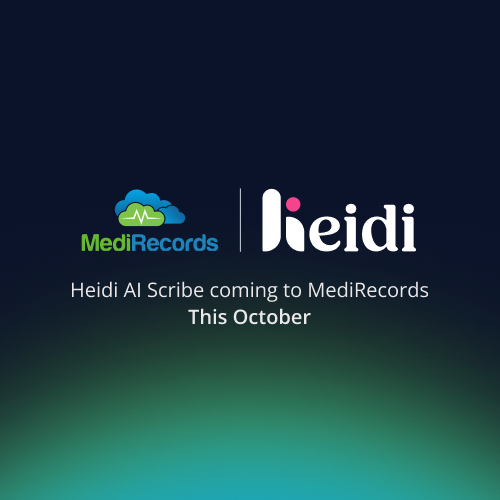
AI note-taking technology to streamline clinical documentation will be available in MediRecords from October.
The leading cloud electronic health record and practice management system will offer an integration with Heidi Health’s AI Medical Scribe, enabling clinical consultations to be transformed into notes or documents in seconds. Doctors will not need to log into a separate software system, or cut and paste across browser tabs, thanks to embedded Heidi capability inside MediRecords.
Supporting millions of sessions per month, Heidi generates documents such as referral letters, clinical notes and Care Plans. With Heidi scribing, doctors can type less and reclaim time for patient care — or better work life balance.
MediRecords Founder and CEO Matthew Galetto said: “Everything we can do to improve working conditions for clinicians helps them provide better patient outcomes. We are excited about partnering with Heidi Health and our other AI initiatives on the way.”
Heidi Health Founder and CEO Dr Thomas Kelly said: “As a clinician, I recognise that doctors rarely experience benefits from introducing new tools. Heidi is the rare case where simply clicking a button can be life-changing, saving hours of work each day. We’re proud to be partnering with MediRecords, who have led the industry in cloud, interoperability and now, AI.”
Heidi Health data shows clinicians spend more than two hours per day on tasks other than patient care, losing up to $66,000 annually as a result. AI scribe technology means they can work up to twice as efficiently. Doctors who use Heidi report “getting home on time” and “taking their lunch break again.”
With a Heidi subscription, MediRecords users can launch AI ambient technology from their clinical dashboard, transforming consultations into templated notes for review by the user. Once reviewed, the notes are automatically added to MediRecords’ Today’s Notes field. Heidi Health technology is GDPR and APP (Australian Privacy Principles) compliant and ISO27001 and SOC2 accredited for security.
MediRecords is a multidisciplinary EHR and PMS system used by clients including Queensland Health, the Victorian Virtual Emergency Department and soon to be deployed by the Australian Defence Force.
Media inquiries
To arrange to speak with Mr Galetto, or for further information on MediRecords, please email Tim Pegler or call 0435 444 690.
To arrange to speak to Dr Kelly, please email leah@heidihealth.com.
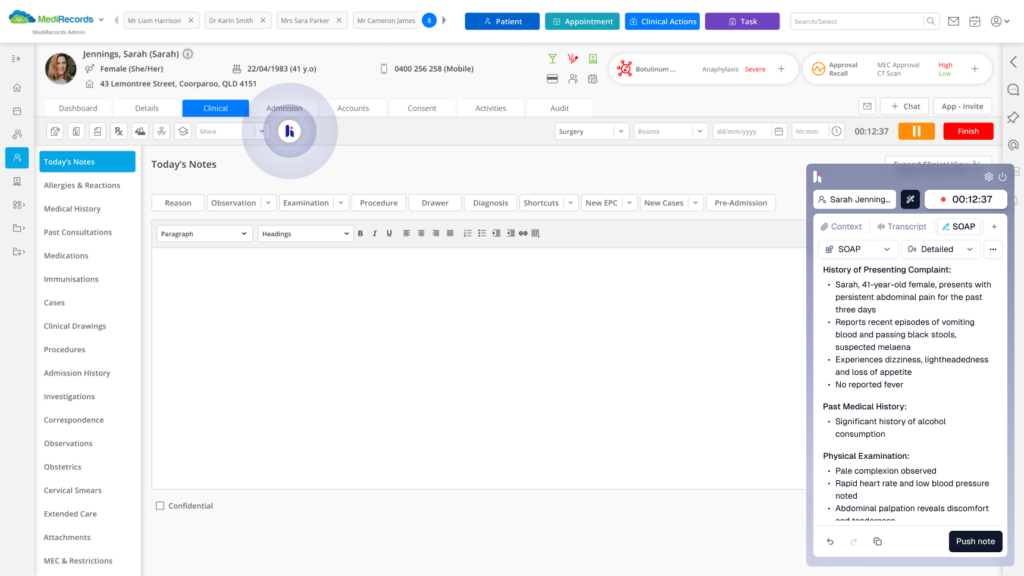
Key features MediRecords customers can expect with Heidi AI Medical Scribe
AI Scribing
Rely on high-quality AI scribing for consultations lasting up to two hours, ensuring detailed and accurate notes.
Multilingual Scribing
Benefit from Heidi AI Scribe in 26 languages, supporting diverse patient communities.
Smart Transcription
Upgrade from traditional dictation to smart transcription. No need for manual commands like "Full stop. New line."
Custom Templates
Create your own note formats or choose from pre-built templates to suit your clinical workflow.
One-Click Access
Once configured, you can open Heidi AI Scribe directly within MediRecords without the hassle of separate logins.
Auto Documentation
Following clinical review, Heidi AI Scribe adds notes to Today’s Notes, streamlining your documentation process.
Interested in finding out more about Heidi AI Scribe in MediRecords?
Complete the form below, and a member of our team will be in touch.


